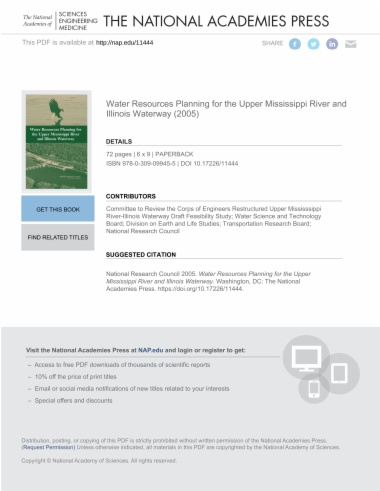

The U.S. Army Corps of Engineers recently completed its feasibility study for the Upper Mississippi River-Ilinois Waterway, which was one of the agency's longest and most complicated studies in its history. The first two reports from this WSTB committee reviewed analytical aspects of the Corps feasibility study. Water Resources Planning for the Upper Mississippi River and Illinois Waterway considers the broader issue of managing the multiple resources of the Upper Mississippi River and Illinois Waterway, especially with regard to several, recently-issued NRC reports on Corps of Engineers planning procedures. The report finds that a key issue regarding planning decisions on these river systems is the ambiguity related to several different pieces of legislation and acts that govern river management, and thus recommends that the administration and Congress clarify the federal intent for managing this river and waterway system. The report recommends an independent, retrospective reivew of the experience with a federal inter-agency Principals Group, which was convened to provide guidance to the Corps study. It is also recommended that the Corps strive to incorporate flexible, adaptive management principles through its entire water planning program, including operations of the lock and dam system.